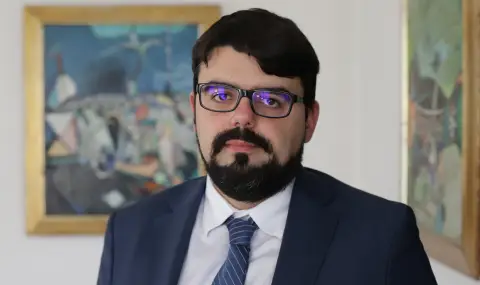Coal-fired power plants produce the most expensive electricity in our country, they and mines are on command breathing. The only reason they survive is that Bulgaria grants 1 billion euros of subsidies per year in the form of various schemes. What options do we have… Martin Vladimirov from the Center for the Study of Democracy spoke to FAKTI.
- Mr. Vladimirov, why has the topic of coal plants become part of the agenda again? We saw the circuses in the parliament, but what do they bring us – show - yes, but a solution…
- Look, the topic of coal-fired power plants has never left the agenda because it's the elephant in the room that nobody wants to hear about. In order to close the coal plants, the structure of the state electricity industry must be changed. This goes through the elimination of country capture networks. Coal-fired power plants produce the most expensive electricity in our country, they and the mines are on command breathing. The only reason they survive is that Bulgaria provides 1 billion euros in subsidies per year in the form of various schemes.
- What are Maritsi without help from the state?
- Without subsidies, the mines must close. In the Recovery and Resilience Plan (RSP), the liberalization of the electricity market is set as a key reform. The European Commission is reluctant to grant a second tranche, let alone a third and fourth, if there are no reforms. We should mention that all projects and reforms must be completed by August 2026. And many projects on PVU have not even started yet. It is difficult for me to imagine implementing, for example, nearly half a gigawatt of batteries by the middle of 2026, since no contracts have yet been concluded, no tenders have been announced, and there is no funding for these projects. Finally, it may happen that part of the projects will be financed not with European money, but with national funds. This would undermine the stability of the budget as the deficit would increase, of course this puts our eventual entry into the Eurozone at risk. The overall development of the Bulgarian economy, which cannot shift into a higher gear, also suffers. We can no longer catch up not with Western Europe, but with Central Europe, because countries like Poland, the Czech Republic and Slovakia have already caught up with Western Europe thanks to a reasonable economic policy of structural changes and attracting investments in industries with high added value.
- Why is there no political will to find a way out of the situation, but it is a convenient topic for everyone to talk about?
- Because we are entering another election campaign. Plant closures are associated with job losses. It is not profitable for any political party to mention this fact. However, the real reason for the inaction is neither the workers nor the energy-vulnerable consumers, but the attempt to keep the status quo intact in the coal sector. And this is because the enormous financial resources of the state are aimed at certain companies that gravitate around the plants and mines, receiving public contracts or direct subsidies.
- You are talking about the fact that funding from the state to Maritsi is distributed in a precisely defined way through public procurement. So let's understand…
- As long as we have a regulated market, all taxpayers will pay for this state support. The money we receive from the sale of carbon quotas is BGN 2.4 billion per year - this is what the state earns. Instead of this money sinking into a bottomless pit financing wasteful capacity, it could be used wisely for investment in key and infrastructure projects and in reducing energy poverty. And now what – we both don't have a market, and we're wasting public money that we can use much more effectively, and we're serving these private interests.
- How long can we go on like this?
- In principle, according to the rules of the European Union for state aid from July 2025, we will not be able to grant it, because then the rules of the industrial emissions directive come into force. This means that if Bulgaria continues to delay the liberalization of the market, the EC will start criminal proceedings against us. A lawsuit against the country may be reached. The whole show may end up to 2-3 years. But then we will both pay a fine, and the plants will stop from today to tomorrow and without a real prospect for career development of all these laid-off workers.
And they can be provided with employment.
Politicians like to make up numbers, to exaggerate things, but in reality it is about 10-15 thousand people who are directly employed in the sector.
At the same time, there are so many funds – both European and national, for retraining, for early retirement and for finding new jobs for these employees in fast-growing companies in the Stara Zagora region.
At the moment in Maritsite only 1/3 of the employees are actually engaged. Because the load on the plants - except for a few months of the year - is very low, the mines have no one to supply with lignite. The problem is somewhat domestic, because wages in the coal sector are very high. They are higher than the national average, and based on these high incomes, workers have bought property, paid off mortgages, and cutting their jobs earlier would put them in a difficult financial situation. But Bulgaria has so many financial and economic instruments with which to solve this problem in order to give real market realization to these workers.
